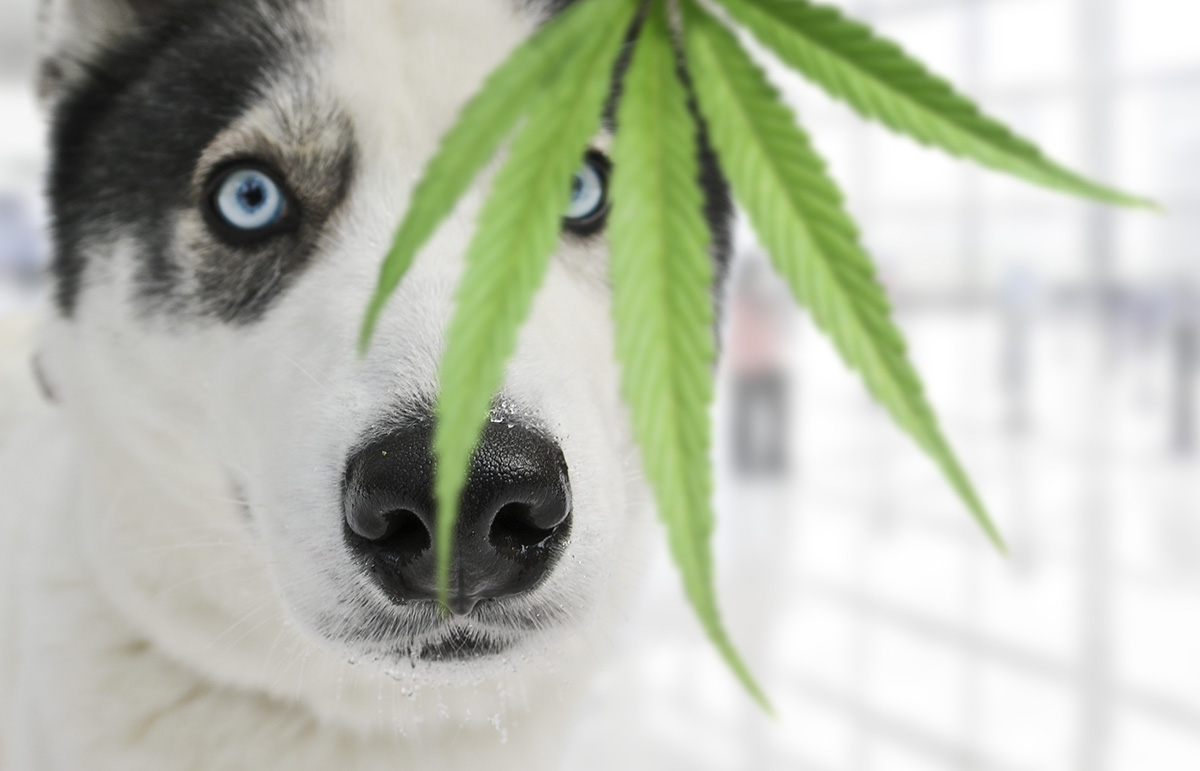Marijuana: The Re-emergence of an Old Foe
 Marijuana: The Re-emergence of an Old Foe
Marijuana: The Re-emergence of an Old Foe
Anthony Gonzalez, DVM, DACVECC
The recent wave of marijuana legalization in states across the U.S. has brought along an increased exposure of the long-known toxin for household pets. The ASPCA’s Animal Poison Control Center has reported a 765% increase in calls regarding marijuana ingestion in this year alone. As such, we wanted to review some key points regarding marijuana toxicity to help maintain awareness so that your pets can stay safe from exposure.
- The psychoactive ingredient found in marijuana is THC (tetrahydrocannabinol). This will cause the classic clinical signs of incontinence, hypersensitivity to touch and sound, abnormally low heart rate, and ataxia (or “drunken” walk). Pets exhibiting any of these signs should be immediately evaluated by a veterinarian.
- Dogs and cats are extremely susceptible to marijuana toxicity. They have cannabinoid receptors in their brains which makes even the smallest exposure to THC potentially more toxic. Exposure can occur via second-hand smoke, direct ingestion of the cannabis plant, or ingestion of any edibles.
- THC is different from CBD (cannabidiol) oil, which is oil culled from marijuana or hemp plants. While many are using CBD oil to treat various ailments in pets, it is important to be aware that the manufacturing and distribution of CBD oil is not regulated and so CBD products may contain variable amounts of THC, creating a potentially dangerous exposure to pets. It should be mentioned that there is to date no scientific literature to prove the utility or safety of CBD oil in pets.
- Classically, most signs of toxicities would resolve within 12-24 hours. However, with legalization, THC is now being produced in various forms and products (such as cooking ingredients, treats and medical strains) which all have much higher concentrations of THC than what used to be the classic exposure. This creates a far more dangerous exposure that can cause severe signs and, in some cases, death. Any marijuana exposure in a pet should be taken seriously, no matter how small it is perceived.
- Don’t be afraid to tell your veterinarian about any potential exposure to marijuana or other substances in the household. Provide any packaging available that could give information regarding the concentration of THC ingested so that your pet can be treated as quickly and effectively as possible. As much information is helpful as our main concern is the safety of your pet.
For any additional questions, we encourage you to contact your primary care veterinarian or nearest veterinary emergency hospital, or utilize the 24/7 veterinary poison help centers: ASPCA Animal Poison Control Center (888)-426-4435 or Pet Poison Helpline (855)-764-7661.
Have a wonderful and safe rest of the summer!

Add new comment